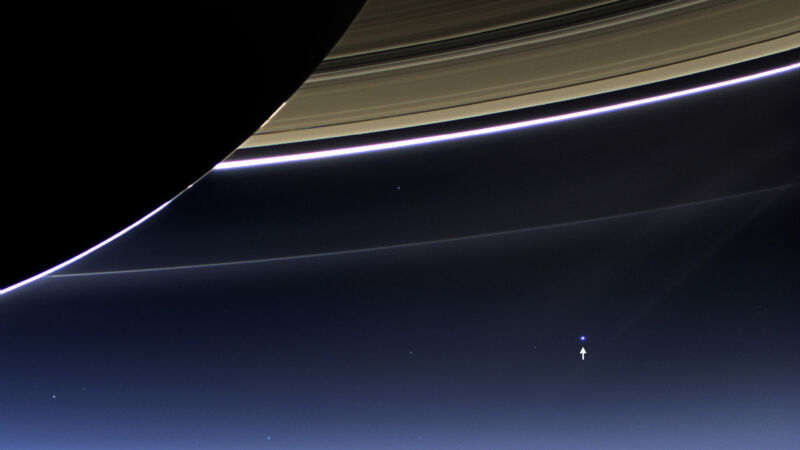Who could know we’re here on Earth?

Enlarge / This is what Earth looks like from within the Solar System. Imaging it from a different system entirely poses some challenges. (credit: NASA/JPL-Caltech/Space Science Institute)
The search for extraterrestrial intelligence (SETI) has primarily involved looking outward and searching nearby stars for signals that can't be explained by known natural processes. But there has also been consideration given to the possibility that an extraterrestrial intelligence might be looking for us. Investigations have included intentional signals sent to nearby stars and calculations of how far out our civilization's radio transmissions will reach.
A new study focuses on the question of who might be capable of detecting us and considers how we're looking for signs of life around other stars. The study estimates that the Earth is surrounded by thousands of star systems from which hypothetical inhabitants would be able to detect our presence via the same techniques we've been using to search for life around other stars. And civilizations orbiting a significant number of those stars would also be able to detect things like oxygen in our atmosphere or the radio signals we have produced over the last century or so.
A shifting landscapeThe new analysis, done by researchers Lisa Kaltenegger and Jacqueline Faherty, relied on data from the European Space Agency's Gaia mission, which was put in space to generate a three-dimensional map of the Milky Way. But the Milky Way isn't static; its stars rotate in synchrony, but they also move relative to each other. For many stars, repeated observations by Gaia also allowed an estimation of their motion relative to the Sun. This allowed Kaltenegger and Faherty to extend their analysis forward and backward in time, creating a window 10,000 years wide and centered on the present.
Read 11 remaining paragraphs | Comments